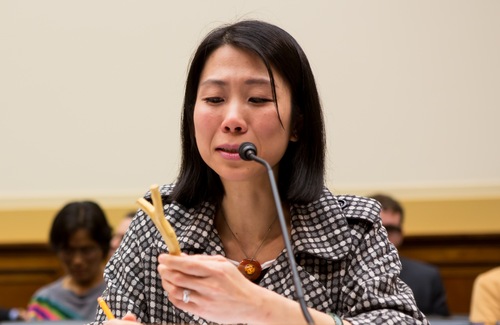(Minghui.org) Wang Zhiwen, a coordinator for the Falun Dafa Research Association in Beijing, was released from a 15-year prison term on October 18, 2014, only to be immediately sent to a brainwashing center.
Mr. Wang, a former official at the Ministry of Railways, was arrested at his home in the early hours of July 20, 1999. He was one of hundreds of Falun Dafa practitioners abducted nationwide that morning as the Chinese regime officially launched its persecution of the practice.
He was sentenced to 16 years imprisonment during a trial that was broadcast across China by state-run television stations on December 26, 1999.
Mr. Wang's daughter Danielle lives in the United States. She spoke to him via telephone on October 18 as he was being transported from Qianjin Prison to a brainwashing center in the Changping District of Beijing.
Relatives later told Danielle that her father had suffered a stroke almost a month ago. They also warned Danielle to “stay put” in the U.S. and to “mind our safety,” suggesting that they had received threats from the Chinese authorities.
 Prisoner of conscience Wang Zhiwen in 1997 and 2014. (Photo courtesy of the Epoch Times)
Prisoner of conscience Wang Zhiwen in 1997 and 2014. (Photo courtesy of the Epoch Times)
Mr. Wang's case gained increased international attention after Danielle testified at a U.S. Congressional hearing on December 5, 2013. The latest annual report by the U.S. Congressional-Executive Commission on China (CECC), released on October 9, 2014, again called for his release.
What happened to Mr. Wang – being released from prison and quietly transferred to a brainwashing center – is consistent with other firsthand persecution reports from China published on this website. The nationwide persecution policy has not changed, although the forms and approaches may have evolved.
The CECC's 2014 Annual Report states that “In the spring of 2014, a 'legal education center' in Jiansanjiang, Fujin county, Heilongjiang, was shut down in the wake of the publicity surrounding the detention and torture of four human rights lawyers who went to Jiansanjiang to provide legal assistance to Falun Gong practitioners detained there.”
“However, authorities have reportedly replaced the Jiansanjiang facility with a compulsory drug detoxification center in Qiqiha’er city, Heilongjiang, which is being used as a 'legal education center' to detain Falun Gong practitioners,” the report continued.
Amnesty International's December 2013 report on China's moves to abolish its labor camp system concluded that “it's clear that the underlying policies of punishing people for their political activities or religious beliefs haven't changed. The abuses and torture are continuing, just in a different way.”
Danielle said in a phone interview this week that she was very worried about her father's safety:
“There are two brainwashing centers in Changping, Beijing. According to Minghui, Falun Dafa practitioners have been beaten to death in both centers. At these places, practitioners have been injected with nerve-damaging drugs, destroying the practitioners’ health. I am very concerned.”
 Danielle Wang calls for her father's release at the congressional hearing “Their Daughters Appeal to Beijing: ‘Let Our Fathers Go.’” The small tree branch in her hand is the only thing she has received from her father Wang Zhiwen during the 15 years he had been imprisoned.
Danielle Wang calls for her father's release at the congressional hearing “Their Daughters Appeal to Beijing: ‘Let Our Fathers Go.’” The small tree branch in her hand is the only thing she has received from her father Wang Zhiwen during the 15 years he had been imprisoned.
Minghui.org's latest whitepaper on China's hidden brainwashing industry highlights the use of institutionalized brainwashing in the persecution of Falun Dafa. Brainwashing is seen as a highly efficient, highly monetized system, executed by dedicated facilities in every city in every province.
Meng Jun, a practitioner who shared a prison cell with Mr. Wang in 2002, described his memories of Mr. Wang in an article recently published on the Chinese Minghui website:
“Mr. Wang is tall and a little bit slouched due to having to sit on small benches for long periods of time during forced labor in prison. He came across as a warm-hearted person, often with a slight smile... In an environment as suffocating as prison, I saw that he didn't collapse. I'm happier when I'm with him.”
Relatives had given Mr. Wang a letter from his daughter during a prison visit. Mr. Wang cherished the letter and read it often, Mr. Meng recalled.





